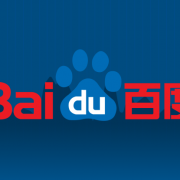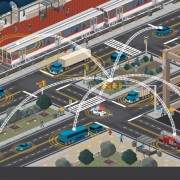Jennifer van der Kleut
When one thinks about driverless car testing these days, names like Google, Ford, GM, Tesla Motors and potentially even Apple instantly come to mind.
But perhaps there’s one other company whose name is escaping you-one that some experts think could possibly even speed right past the others-Baidu.
Baidu is a Chinese company that many don’t realize is already out there, testing driverless cars in varying weather conditions in different spots around China. And, thanks to China’s more relaxed regulations, some think they could very well leave industry leaders in the dust and get a driverless car to market first.
It certainly seems as though Baidu has the clout to succeed, as the company is valued at around $55 billion.
In addition, Motley Fool reports, “Baidu also has the big ambitions to go with its big size: The company hopes to have driverless cars in 10 Chinese cities within three years. By comparison, Google has been working on the technology since 2009 and only has driverless cars on the road in two cities — Austin, Texas and Mountain View, Calif. Ford has driven a driverless test vehicle at Mcity, a simulated city at the University of Michigan, while GM hopes to begin road testing one on its campus by the end of this year. None of these American companies have taken any steps toward testing in China.”
Motley Fool also points out that the Chinese seem eager to adopt the technology, where most surveys still indicate at least half of Americans remain skeptical of it.
“Baidu is focusing on China, where the market for autonomous vehicles could be nearly as large as North America’s by 2035, according to data from IHS Automotive. Indeed, according to a recent University of Michigan survey, 96 percent of Chinese drivers would be interested in purchasing an autonomous vehicle, compared to only 66 percent in the U.S.”
Plus, regulations in America complicate a move toward autonomous transportation-there is currently no consistent national policy, and a small handful of states have conflicting regulations, while others have no law on the books at all.
By contrast, in China, Motley Fool points out that there is a one-party, “top-down” regulatory system, where local laws are not allowed to contradict national laws.
To its benefit, Baidu has reportedly made several presentations to China’s president on the merits of autonomous and connected vehicle technology.
“Chinese President Xi Jinping reportedly considers autonomous vehicles and digital technology key areas of opportunity for Chinese manufacturers,” Motley Fool reports.
Though historically, China has been a century behind other nations in automotive technology, Baidu’s co-founder and CEO says he is confident Baidu has the technical expertise to reach its autonomous transportation goals.
“Robin Li, Baidu’s co-founder and chief executive officer, has invested heavily into a subfield of artificial intelligence known as deep learning, which aims to improve search results and computing tasks by training computers to work more like the human brain,” Bloomberg Business reports. “[Wang Jing, Baidu’s senior vice-president in charge of its autonomous drive division,] thinks the company can leverage its expertise in artificial intelligence, data mapping and Internet connectivity to excel in autonomous driving technology.”
“Google enjoys a huge lead in autonomy today. But don’t underestimate the Chinese will to compete,” Michael Dunne, president of Dunne Automotive Ltd. in Hong Kong, said to Bloomberg.


